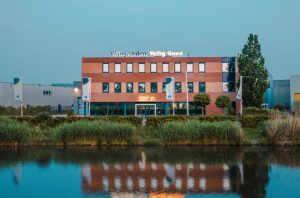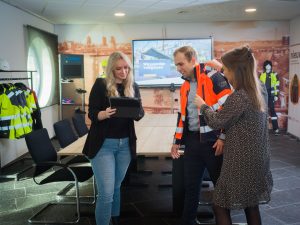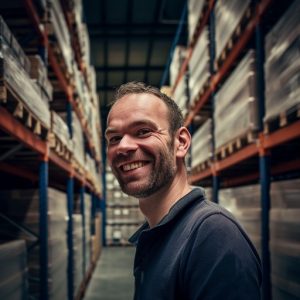A great example of a sustainable relationship is our collaboration with Krinkels. Krinkels considers it important to make a visible contribution to a circular economy, which is why sustainable clothing has become an important part of a circular business. What does this look like in concrete terms?
The clothes worn at Krinkels since 5 years, such as T-shirts and jumpers, are of the brand Cottover. Cottover's clothing has the labels 'Fairtrade' and 'Nordic Ecolabel'. This means that synthetic pesticides, fertilisers, genetically modified crops and hazardous chemicals are not used in production. In addition, cotton farmers are guaranteed a minimum price for their cotton that covers the cost of sustainable production.
Sustainable jeans work trousers have recently been introduced at Krinkels. These trousers consist of 66% of recycled cotton. A pair of jeans work trousers weighs about 1 kg. Reusing the cotton fibres from the sustainable jeans saves 4600 litres of water per kilo. This also saves 2.08 CO2/kg, 8.35 kWh of electricity, 0.75 kg of fertiliser and 7.7 ml of pesticides. Each pair of work trousers thus contributes to lower CO2-emissions and less energy consumption.
An enthusiastic employee: 'Besides being durable, our workwear is also comfortable and the quality is top notch! So two birds with one stone!'
Return for recycling
At the end of the life cycle of workwear and safety shoes, they are collected in the big bags present at every Krinkels site. During processing of the material, the cotton is taken out and can be reused. The remaining fibres are used to make, for example, cleaning cloths and tarpaulins, but also insulation material, which is widely used in the automotive industry. In addition, the steel noses from the work shoes are reused and the inner lining and laces are recycled.
In this way, Krinkels contributes to circularity together with Veiliggoed. Once a year, an evaluation takes place with Krinkels to see how we can further improve sustainability and recycling in the future.




